
Brasília: The Modernist Marvel of Brazil
Brasília, the capital of Brazil, is a city like no other. Designed by the visionary architect Oscar Niemeyer and urban planner Lúcio Costa, it stands as a testament to modernist architecture and innovation. Built in just 41 months, Brasília was inaugurated in 1960 and has since been a UNESCO World Heritage site. Its layout, resembling an airplane or a bird in flight, is both functional and aesthetically pleasing, offering visitors a unique experience. A stroll through Brasília reveals its architectural wonders. The city's centerpiece is the Praça dos Três Poderes (Three Powers Square), where you'll find the Palácio do Planalto, the National Congress, and the Supreme Federal Court. Nearby, the iconic Catedral Metropolitana, with its hyperboloid structure and stained-glass windows, is a must-see. The city also boasts several museums, including the National Museum of the Republic and the Juscelino Kubitschek Memorial, which provides insights into Brazil's history and culture. Brasília isn't just about architecture. The city's vast green spaces, such as the Parque da Cidade Sarah Kubitschek and the Brasília National Park, offer a refreshing break from urban life. The Paranoá Lake, an artificial reservoir, is perfect for water sports and leisure activities. As you explore, you'll find a vibrant culinary scene, with local restaurants offering traditional Brazilian dishes and international cuisine. Brasília's nightlife is lively, with numerous bars and clubs to enjoy. Whether you're an architecture enthusiast, a history buff, or simply looking for a unique travel experience, Brasília has something for everyone. Its blend of modernist design, cultural attractions, and natural beauty makes it a destination worth exploring.
Local tips in Brasília
- Visit the main attractions early in the morning to avoid crowds and the midday heat.
- Rent a bike to explore the city's extensive network of bike paths and parks.
- Try the local dish 'Pão de Queijo' at one of the city's many bakeries.
- Take a guided tour to fully appreciate the architectural significance of the city's landmarks.
- Stay hydrated and wear sunscreen, especially if you're visiting the open spaces and parks.
Neighbourhoods in Brasília
Brasília: The Modernist Marvel of Brazil
Brasília, the capital of Brazil, is a city like no other. Designed by the visionary architect Oscar Niemeyer and urban planner Lúcio Costa, it stands as a testament to modernist architecture and innovation. Built in just 41 months, Brasília was inaugurated in 1960 and has since been a UNESCO World Heritage site. Its layout, resembling an airplane or a bird in flight, is both functional and aesthetically pleasing, offering visitors a unique experience. A stroll through Brasília reveals its architectural wonders. The city's centerpiece is the Praça dos Três Poderes (Three Powers Square), where you'll find the Palácio do Planalto, the National Congress, and the Supreme Federal Court. Nearby, the iconic Catedral Metropolitana, with its hyperboloid structure and stained-glass windows, is a must-see. The city also boasts several museums, including the National Museum of the Republic and the Juscelino Kubitschek Memorial, which provides insights into Brazil's history and culture. Brasília isn't just about architecture. The city's vast green spaces, such as the Parque da Cidade Sarah Kubitschek and the Brasília National Park, offer a refreshing break from urban life. The Paranoá Lake, an artificial reservoir, is perfect for water sports and leisure activities. As you explore, you'll find a vibrant culinary scene, with local restaurants offering traditional Brazilian dishes and international cuisine. Brasília's nightlife is lively, with numerous bars and clubs to enjoy. Whether you're an architecture enthusiast, a history buff, or simply looking for a unique travel experience, Brasília has something for everyone. Its blend of modernist design, cultural attractions, and natural beauty makes it a destination worth exploring.
When is the best time to go to Brasília?
Iconic landmarks you can’t miss
Shopping Conjunto Nacional
Brasília's first shopping mall, a landmark since 1971, offering a wide variety of stores, dining, and cultural experiences.
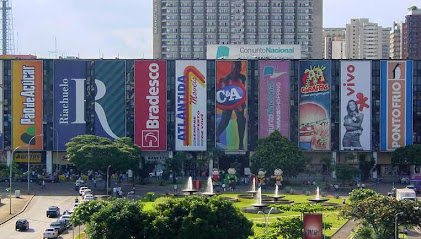
Pontão do Lago Sul
Experience leisure, dining, and stunning lake views at Brasília's premier recreational center, Pontão do Lago Sul.
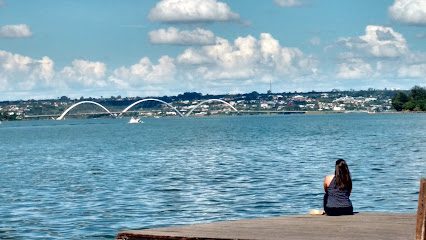
Catedral Metropolitana Nossa Senhora Aparecida
Discover Brasília's iconic cathedral: a modernist architectural marvel and symbol of faith, designed by Oscar Niemeyer. A must-see landmark!

Zoológico de Brasília
Discover diverse wildlife at Brasília Zoo, a conservation and education center in the heart of Brazil's capital.
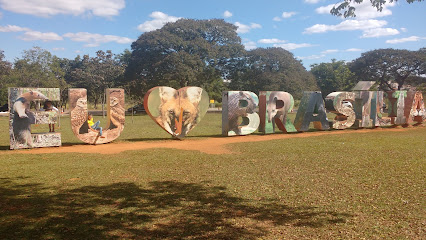
Centro Cultural Banco do Brasil - Brasília
Experience art, film, music, and culture in the heart of Brazil's capital at the Centro Cultural Banco do Brasil Brasília. Open daily!
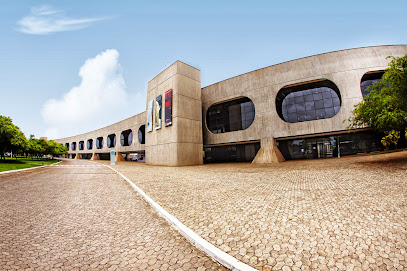
Three Powers Plaza
Explore Brasília's Three Powers Plaza: A symbol of Brazilian democracy, showcasing modernist architecture and the world's largest continuously flown flag.
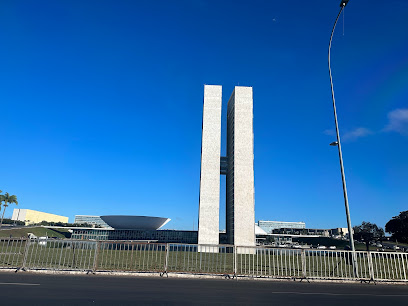
Memorial JK
Explore the Memorial JK, a stunning museum in Brasília celebrating the legacy of President Juscelino Kubitschek and Brazil's rich history.
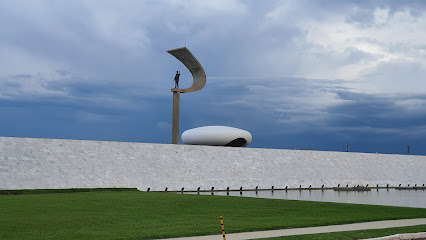
Don Bosco Chapel
Discover Brasília's tranquil Don Bosco Chapel: a stunning lakeside sanctuary blending unique architecture with serene natural beauty.
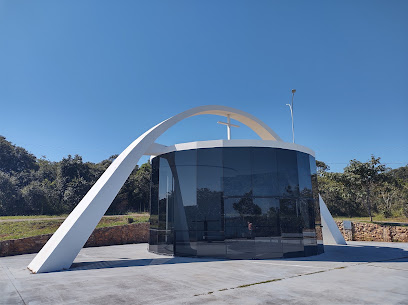
Juscelino Kubitschek Bridge
Discover Brasília's iconic Juscelino Kubitschek Bridge: a stunning architectural masterpiece over Lake Paranoá, symbolizing the city's modern spirit.
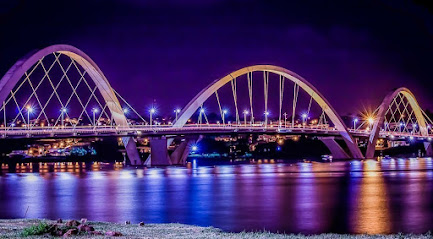
MUSEU Nacional da República
Explore Brazilian art and culture in an iconic Niemeyer masterpiece in the heart of Brasília.
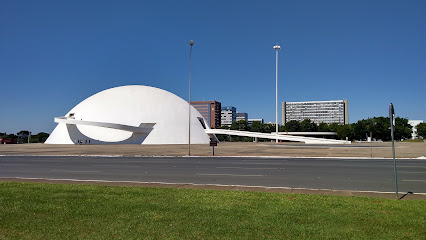
Praça dos Cristais
Discover Brasília's Praça dos Cristais: A modernist landscape featuring crystal sculptures, serene gardens, and cultural experiences.
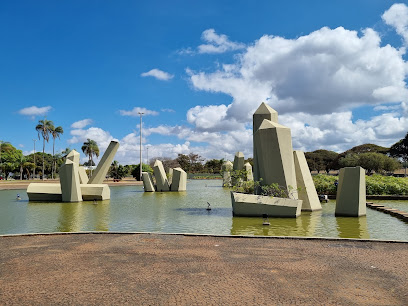
Parque Nacional de Brasília
Uncover the natural beauty and diverse wildlife of Parque Nacional de Brasília, a breathtaking national park perfect for hiking and outdoor exploration.
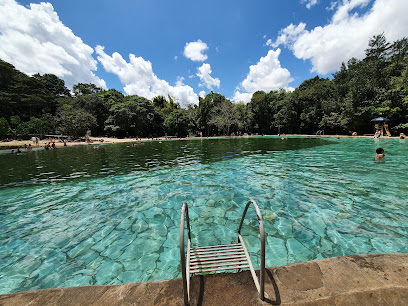
Parque da Cidade Sarah Kubitschek
Discover Brasília's largest urban park: a blend of nature, recreation, and culture in the heart of the capital.
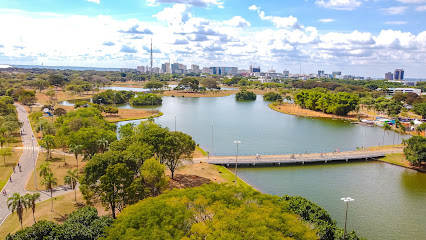
Santuário São João Bosco
Discover a breathtaking sanctuary in Brasília, where stunning blue stained glass and modern architecture create a celestial and serene atmosphere.
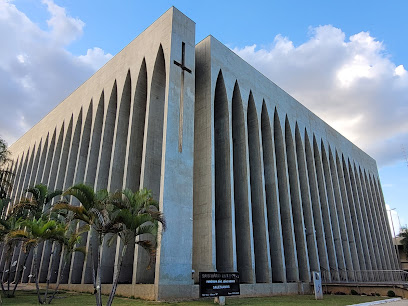
Torre de TV Digital
Experience breathtaking panoramic views of Brasília from the iconic Torre de TV Digital, Oscar Niemeyer's 'Flor do Cerrado'.
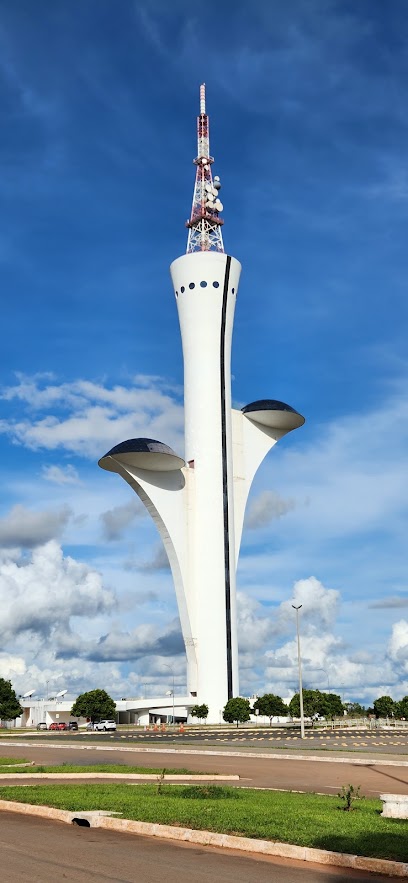
Unmissable attractions to see
Pontão Lago Sul
Experience Brasília's vibrant lakeside at Pontão Lago Sul: dining, recreation, and stunning views await!
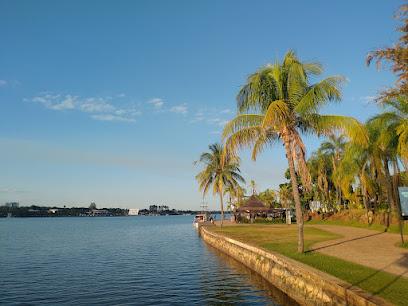
Arena BRB Mané Garrincha
Experience the passion of Brazilian sports and entertainment at Brasília's iconic Arena BRB Mané Garrincha, a world-class stadium and event venue.
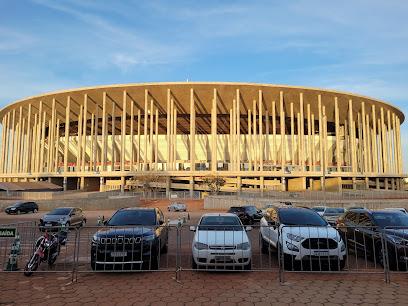
Catedral Metropolitana Nossa Senhora Aparecida
Discover Brasília's iconic modernist cathedral, a masterpiece by Oscar Niemeyer, featuring stunning architecture and spiritual ambiance.

Feira da Torre de TV
Discover Brasília's vibrant culture at Feira da Torre de TV: handcrafted goods, local flavors, and cultural experiences await!
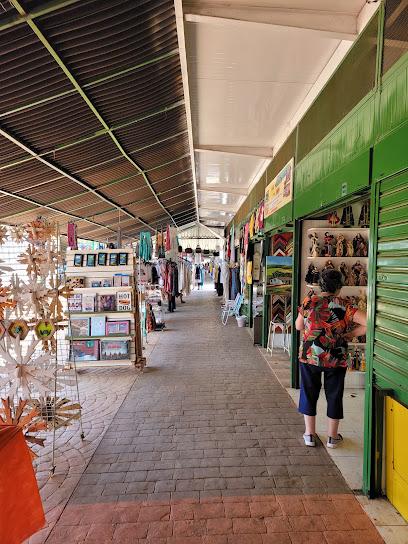
Zoológico de Brasília
Discover diverse wildlife and conservation efforts at Brasília's Zoo, a landmark of environmental education and preservation since 1957.
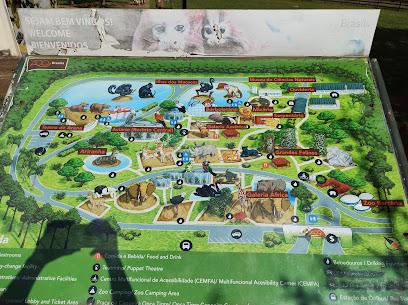
Centro Cultural Banco do Brasil - Brasília
Explore art, theater, and culture in an architectural masterpiece by Oscar Niemeyer, offering stunning views of Lake Paranoá in Brasília.
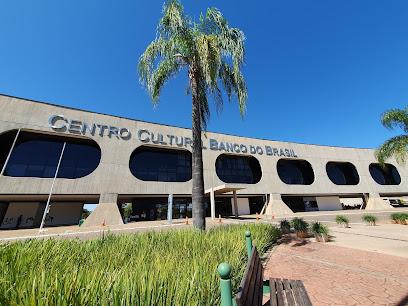
Centro Cultural Banco do Brasil - Brasília
Discover Brasília's vibrant arts scene at the Centro Cultural Banco do Brasil, offering diverse exhibitions, cinema, music, and theater for all ages.
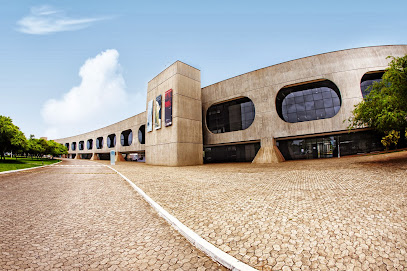
Memorial JK
Explore the legacy of Juscelino Kubitschek at Brasília's iconic Memorial JK, a modernist masterpiece and cultural center.
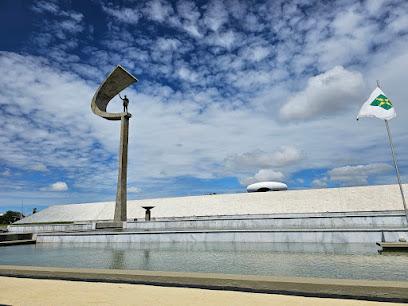
Convention Center Ulysses Guimarães
A landmark Brasília convention center hosting diverse events, exhibitions & cultural experiences in a modern architectural setting.
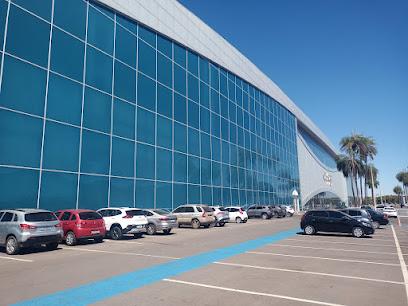
Don Bosco Chapel
Discover tranquility at Don Bosco Chapel in Brasília: a serene lakeside sanctuary blending faith, architecture, and natural beauty.
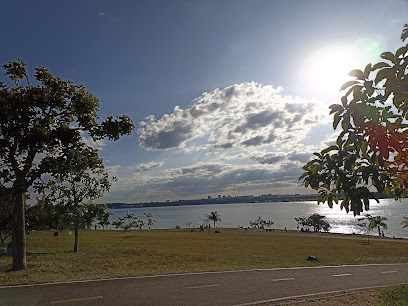
MUSEU Nacional da República
Explore Brazilian art and history within the iconic architecture of Oscar Niemeyer's Museu Nacional da República in Brasília.
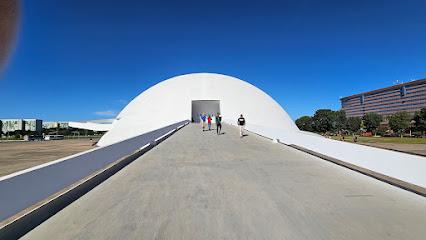
Juscelino Kubitschek Bridge
Discover Ponte JK, Brasília's architectural gem: a stunning bridge with unique steel arches over Lake Paranoá, offering breathtaking views and photo opportunities.

Praça dos Cristais
Discover the beauty of Praça dos Cristais in Brasília, where crystal structures meet serene gardens in a unique urban oasis.
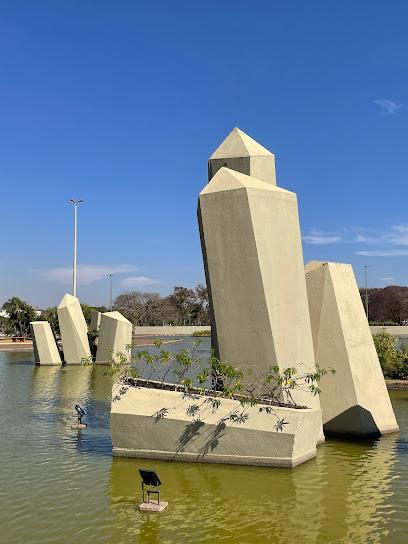
Parque da Cidade Sarah Kubitschek
Discover Brasília's largest urban park: a 420-hectare oasis with recreation, culture, and iconic design.
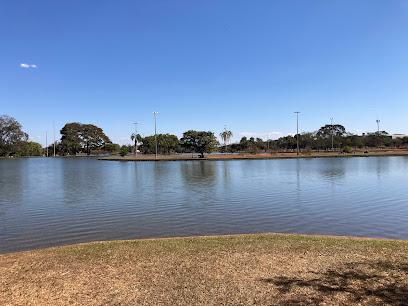
Parque Nacional de Brasília
Discover Brasília's natural side: hiking, swimming, and wildlife in a protected Cerrado ecosystem. A refreshing escape just minutes from the capital.
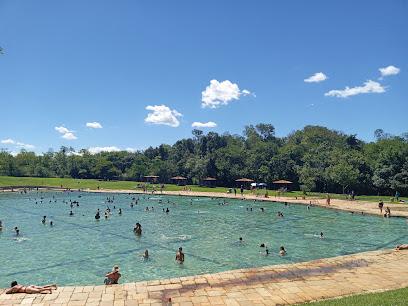
Essential places to dine
Coco Bambu
Experience the finest seafood at Coco Bambu in Brasília – where exquisite flavors meet elegant ambiance.
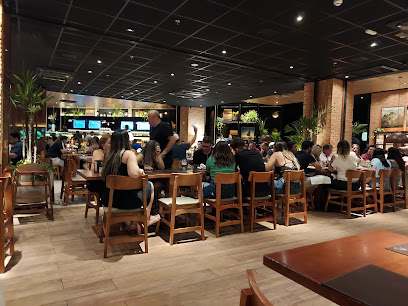
Mangai
Discover authentic Brazilian cuisine at Mangai: a buffet restaurant offering traditional flavors in a vibrant setting.
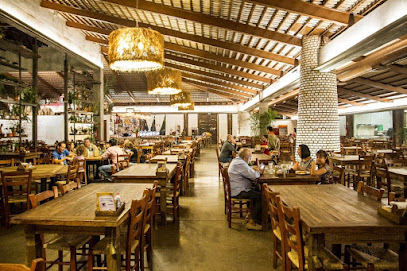
Coco Bambu Brasília Shopping
Discover exquisite seafood dining at Coco Bambu Brasília Shopping - where flavor meets vibrant ambiance.
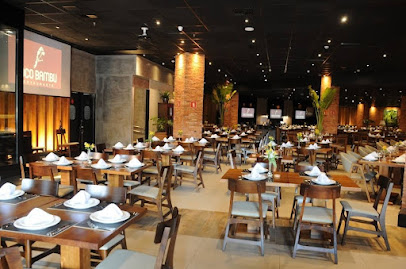
Fogo de Chão Brasília
Experience authentic Brazilian barbecue at Fogo de Chão Brasília – where exquisite flavors meet exceptional service.
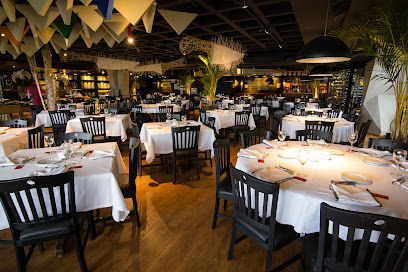
NAU Frutos do Mar
Experience exquisite seafood dining in Brasília at NAU Frutos do Mar - where fresh flavors meet Brazilian hospitality.
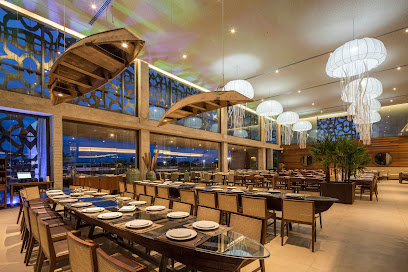
Restaurante Outback Steakhouse
Discover the authentic taste of Australia at Outback Steakhouse in Brasília – where every meal is a celebration.
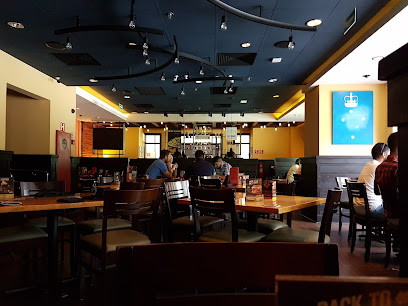
Sallva Bar e Ristorante - Pontão Lago Sul - Brasília DF
Experience exquisite Mediterranean flavors at Sallva Bar e Ristorante with stunning lake views in Brasília's Lago Sul.
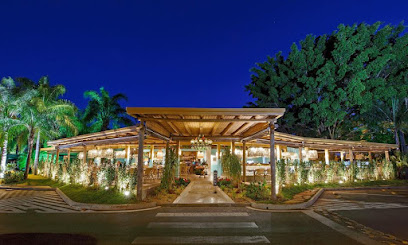
Ticiana Werner Restaurante & Wine Bar
Experience authentic Italian flavors at Ticiana Werner Restaurante & Wine Bar in Brasília - where culinary excellence meets vibrant ambiance.
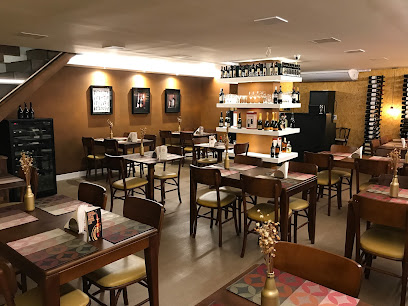
Restaurante Universal
Experience exquisite dining at Restaurante Universal in Brasília - where innovative cuisine meets vibrant atmosphere.
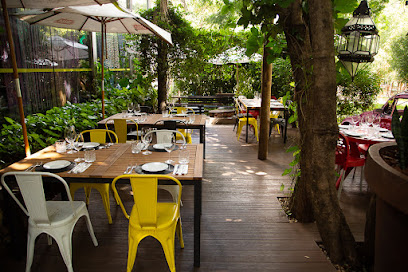
MADERO
Discover the delicious American flavors at MADERO in Brasília - gourmet burgers and succulent steaks await you.
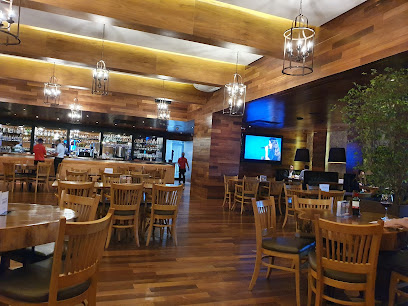
Villa Tevere
Experience authentic Italian cuisine at Villa Tevere in Brasília's Asa Sul - where every dish is a celebration of tradition and flavor.
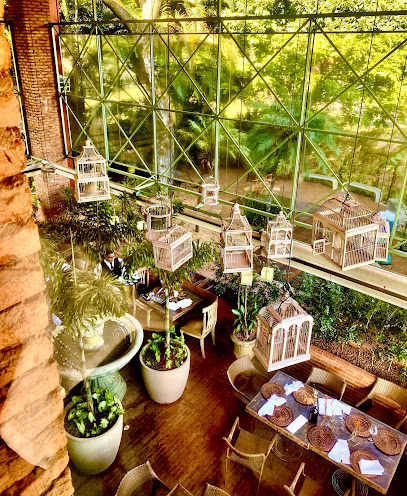
Vasto Restaurante Brasília Shopping
Discover Vasto Restaurante in Brasília Shopping - where fresh seafood meets succulent steaks and exquisite sushi in a vibrant atmosphere.
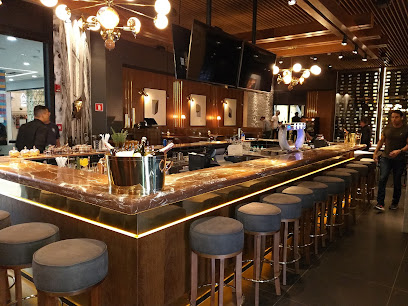
Caminito Parrilla Sudoeste
Discover the essence of Argentinian grilling at Caminito Parrilla Sudoeste in Brasília—where every bite tells a flavorful story.
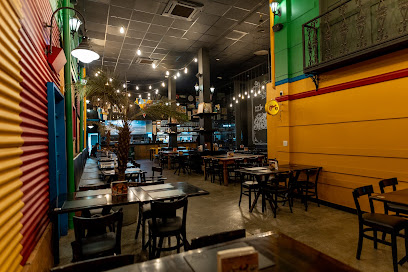
Xique Xique Asa Sul: Carne de Sol, Happy Hour, Eventos, Delivery DF
Discover the vibrant flavors of Brazil at Xique Xique - your destination for authentic Carne de Sol and lively happy hours in Brasília.
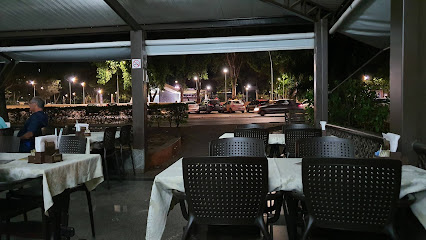
Rubaiyat
Experience the finest steaks and exquisite buffet at Rubaiyat in Brasília – where culinary excellence meets elegance.
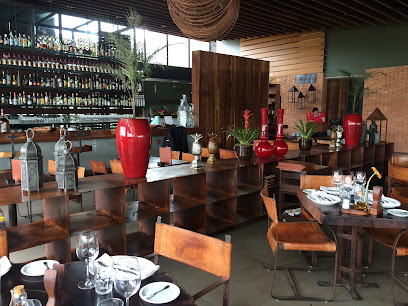
Markets, malls and hidden boutiques
Shopping Conjunto Nacional
Discover Shopping Conjunto Nacional: Brasília's premier shopping mall with diverse retail choices and delightful dining options for tourists.
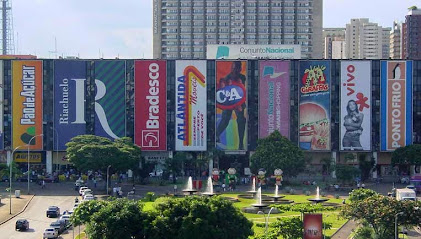
ParkShopping
Explore ParkShopping in Brasília, where shopping meets culture, dining, and entertainment in a vibrant atmosphere.
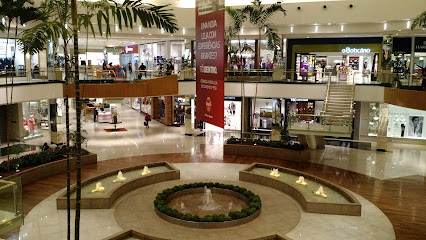
Pátio Brasil Shopping
Experience the best of shopping and dining at Pátio Brasil Shopping, a premier destination in Brasília with a diverse range of stores and entertainment options.
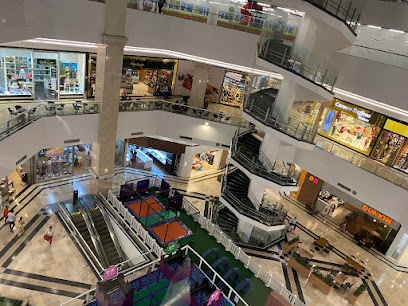
Brasília Shopping
Discover the ultimate shopping experience at Brasília Shopping, featuring hundreds of stores, diverse dining options, and exciting entertainment for everyone.
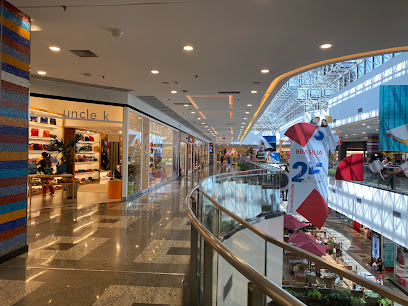
Shopping Pier 21
Discover Shopping Pier 21, a premier shopping mall in Brasília that combines retail therapy with stunning lakeside views and diverse dining options.
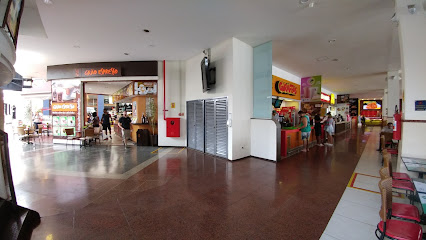
Boulevard Shopping Brasília
Discover the vibrant Boulevard Shopping Brasília, a must-visit destination for shoppers and food lovers alike in the heart of the capital.

Terraço Shopping
Explore the ultimate shopping and entertainment destination at Terraço Shopping in Brasília, featuring diverse stores, dining options, and a movie theater.
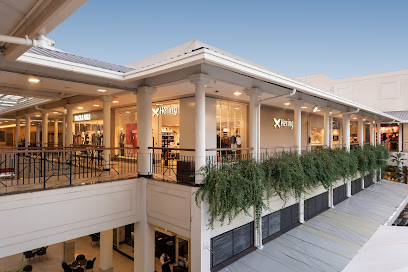
Venâncio Shopping
Discover a vibrant shopping experience at Venâncio Shopping in Brasília, featuring diverse stores, delicious dining, and exciting entertainment options.
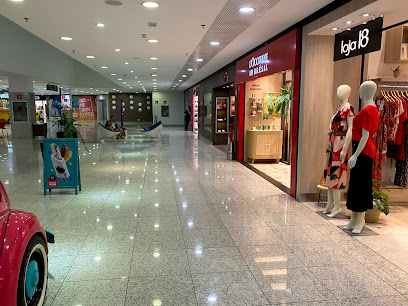
Iguatemi Brasília
Discover Iguatemi Brasília, a stylish shopping mall offering luxury brands, diverse dining, and vibrant entertainment in Brazil's capital.
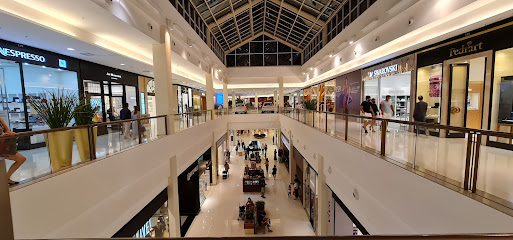
Shopping ID
Explore Shopping ID in Brasília, where shopping meets local culture, dining, and entertainment for an unforgettable experience.
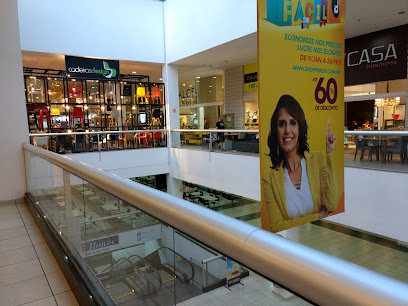
Liberty Mall
Explore the modern Liberty Mall in Brasília, where shopping, dining, and entertainment come together in a vibrant atmosphere.
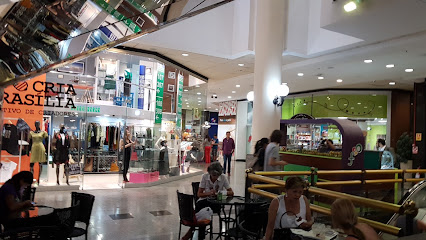
Zinzane
Explore Zinzane in Brasília for trendy women's clothing and unique Brazilian fashion that elevates your style.
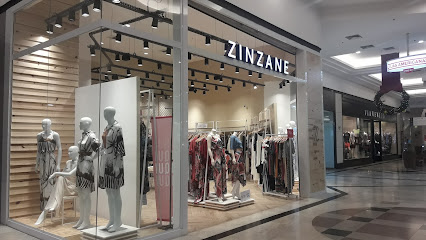
Polo Collection
Discover the latest trends at Polo Collection in Brasília's Pátio Brasil Shopping - a stylish blend of local and international fashion!
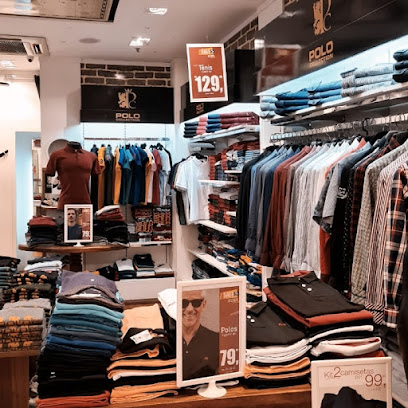
Brasília Presentes
Explore Brasília Presentes for authentic Brazilian gifts, including unique handicrafts and souvenirs that reflect the culture of Brazil's capital.
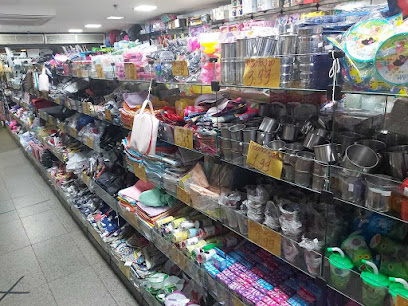
Aramis Brasília Shopping
Discover stylish men's clothing at Aramis Brasília Shopping, where modern fashion meets quality craftsmanship in the heart of Brasília.
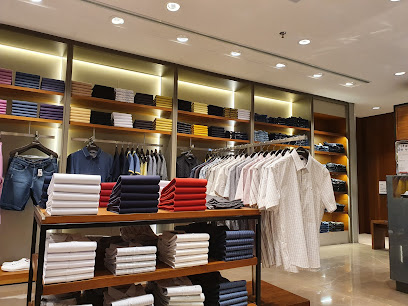
Essential bars & hidden hideouts
Abençoado Bar - Sudoeste
Experience the ultimate nightlife at Abençoado Bar in Brasília, where live music meets mouth-watering cuisine and a vibrant atmosphere.
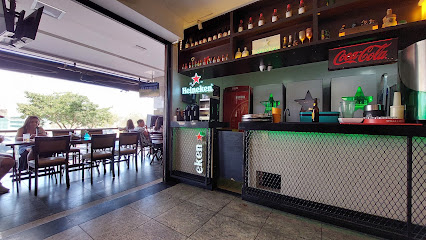
Calaf
Discover the heart of Brasília's nightlife at Calaf, a lively bar and live music venue filled with energy and local flavor.
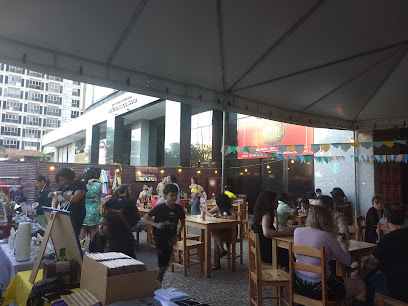
O'Rilley
Discover the vibrant atmosphere of O'Rilley, an Irish pub in Brasília offering delicious food, drinks, and live music for an unforgettable night out.
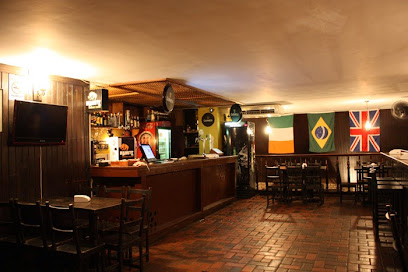
Dudu Bar
Experience the vibrant atmosphere and exquisite culinary delights at Dudu Bar, Brasília's premier destination for food and nightlife.
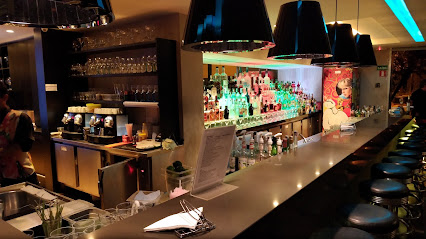
Pinella Bar
Explore Brasília's vibrant nightlife at Pinella Bar, where live music, delicious tapas, and a lively atmosphere await you.
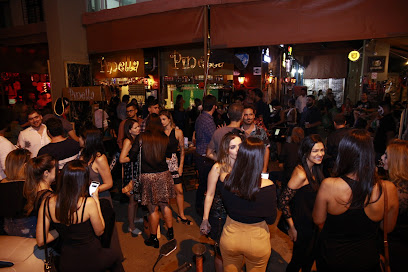
IVV Swinebar
Experience the best of Brazilian cuisine with a modern twist at IVV Swinebar, where tapas and fine wines create unforgettable moments.
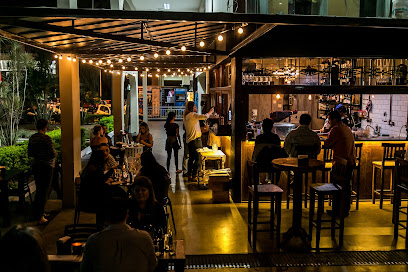
Primo Pobre Bar
Experience the vibrant atmosphere of Primo Pobre Bar in Brasília, where delicious drinks and tasty bites await in a lively setting.
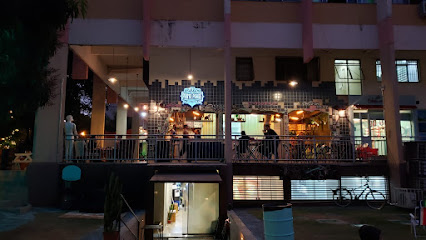
Carcassonne Pub
Discover the vibrant atmosphere of Carcassonne Pub, a bar and board game club in Brasília, offering delicious pizza and an extensive drink menu.
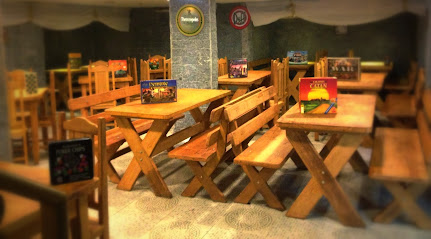
Porks Brasília - Asa Sul
Experience the vibrant nightlife of Brasília at Porks Brasília, where local flavors meet a lively atmosphere in the heart of Asa Sul.
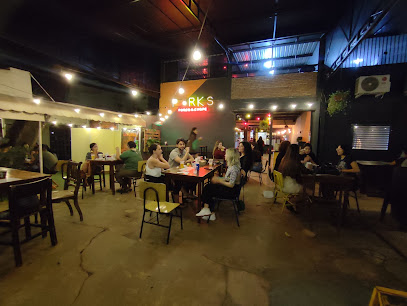
Heisen Bar - Choperia em Brasília
Immerse yourself in Brasília's nightlife at Heisen Bar, where vibrant atmosphere and exceptional drinks await you.
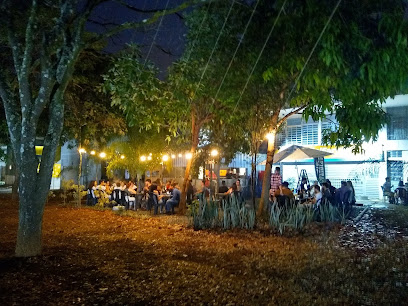
Velvet Pub
Discover the lively atmosphere and vibrant nightlife at Velvet Pub, Brasília's premier cocktail bar featuring live music, DJ services, and karaoke.
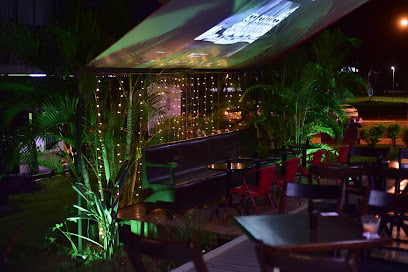
Publican Bar - Cervejas Especiais
Explore the craft beer haven of Brasília at Publican Bar - Cervejas Especiais, where unique brews meet a lively atmosphere and delicious snacks.
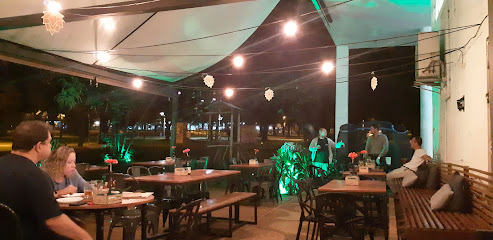
Jungle Bar
Discover the lively nightlife at Jungle Bar in Brasília, where vibrant cocktails and a welcoming atmosphere await.
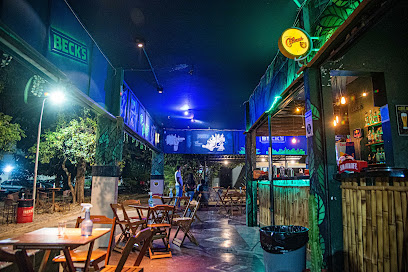
London Street
Discover London Street, Brasília's vibrant gastropub, where delicious food meets a lively atmosphere and an extensive beer selection.
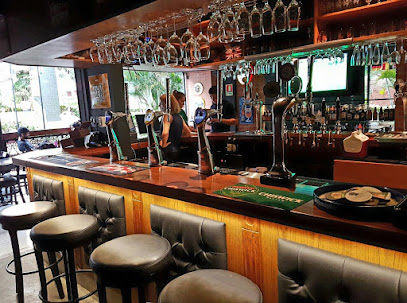
La Cave Wine Bar
Experience the essence of fine wines and delicious bites at La Cave Wine Bar, a hidden gem in Brasília for wine lovers and casual visitors alike.
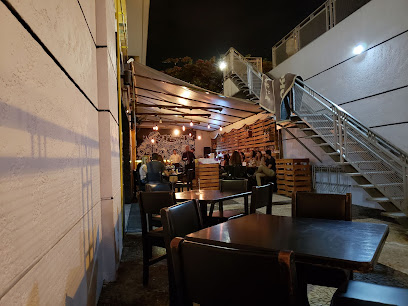
Local Phrases
-
- HelloOlá
[oh-lah] - GoodbyeTchau
[chow] - YesSim
[seem] - NoNão
[now] - Please/You're welcomePor favor/De nada
[pohr fa-vohr/deh nah-dah] - Thank youObrigado
[oh-bree-gah-doh] - Excuse me/SorryCom licença/Desculpe
[kohm lee-sen-sah/deh-skool-peh] - How are you?Como vai?
[koh-moh vai] - Fine. And you?Bem. E você?
[behn. eh voh-seh] - Do you speak English?Você fala inglês?
[voh-seh fah-lah een-glehss] - I don't understandEu não entendo
[eh-oo now en-ten-doh]
- HelloOlá
-
- I'd like to see the menu, pleaseEu gostaria de ver o cardápio, por favor
[eh-oo goh-stah-ree-ah deh vehr oo cahr-dah-pee-oh, pohr fa-vohr] - I don't eat meatEu não como carne
[eh-oo now koh-moh kahr-neh] - Cheers!Saúde!
[sow-deh] - I would like to pay, pleaseEu gostaria de pagar, por favor
[eh-oo goh-stah-ree-ah deh pah-gahr, pohr fa-vohr]
- I'd like to see the menu, pleaseEu gostaria de ver o cardápio, por favor
-
- Help!Socorro!
[soh-koh-rroh] - Go away!Vá embora!
[vah ehm-boh-rah] - Call the Police!Chame a polícia!
[shah-meh ah poh-lee-see-ah] - Call a doctor!Chame um médico!
[shah-meh oom meh-dee-koh] - I'm lostEstou perdido
[eh-stoh pehr-dee-doh] - I'm illEstou doente
[eh-stoh doh-en-teh]
- Help!Socorro!
-
- I'd like to buy...Eu gostaria de comprar...
[eh-oo goh-stah-ree-ah deh kohm-prahr...] - I'm just lookingEstou só olhando
[eh-stoh soh oh-lahn-doh] - How much is it?Quanto custa?
[kwahn-too koohs-tah] - That's too expensiveIsso está muito caro
[ee-soh ehs-tah moo-ee-toh kah-roh] - Can you lower the price?Você pode baixar o preço?
[voh-seh poh-deh bahy-shahr oo preh-soh]
- I'd like to buy...Eu gostaria de comprar...
-
- What time is it?Que horas são?
[keh oh-rahss sah-oh] - It's one o'clockÉ uma hora
[eh oo-mah oh-rah] - Half past (10)Dez e meia
[dehz eh may-ah] - MorningManhã
[mahn-yah] - AfternoonTarde
[tahr-deh] - EveningNoite
[noy-teh] - YesterdayOntem
[ohn-tehm] - TodayHoje
[oh-zhee] - TomorrowAmanhã
[ah-mahn-yah] - 1Um
[oom] - 2Dois
[doh-ees] - 3Três
[trehs] - 4Quatro
[kwah-troh] - 5Cinco
[seen-koh] - 6Seis
[say-ees] - 7Sete
[seh-teh] - 8Oito
[oy-toh] - 9Nove
[noh-veh] - 10Dez
[dehz]
- What time is it?Que horas são?
-
- Where's a/the...?Onde fica o/a...?
[ohn-deh fee-kah oh/ah] - What's the address?Qual é o endereço?
[kwahl eh oh ehn-dreh-soh] - Can you show me (on the map)?Você pode me mostrar (no mapa)?
[voh-seh poh-deh meh moh-strahr (noh mah-pah)] - When's the next (bus)?Quando é o próximo (ônibus)?
[kwahn-doh eh oh proh-ksih-moh (oh-nee-boos)] - A ticket (to ....)Um bilhete (para ....)
[oom bee-lyeh-teh (pah-rah)]
- Where's a/the...?Onde fica o/a...?
History of Brasília
-
The idea of creating a new capital for Brazil dates back to the early 19th century. The objective was to promote the development of the interior of the country and reduce the concentration of political and economic power in the coastal cities. The concept gained traction under President Juscelino Kubitschek, who made it a key part of his 'fifty years of progress in five' plan.
-
In 1957, the urban planner Lúcio Costa won a competition to design the layout of Brasília. Costa's 'Plano Piloto' was revolutionary, featuring a distinct airplane shape when viewed from above. The plan divided the city into specific zones for governmental, residential, commercial, and cultural activities, ensuring a functional and harmonious urban environment.
-
Oscar Niemeyer, one of the most celebrated architects of the 20th century, was commissioned to design many of Brasília's iconic buildings. His futuristic and modernist designs include the National Congress, the Cathedral of Brasília, and the Palácio da Alvorada. Niemeyer's work is characterized by bold curves, extensive use of concrete, and innovative forms that have made Brasília a UNESCO World Heritage site.
-
The construction of Brasília began in 1956 and was a monumental task involving thousands of workers, often referred to as 'candangos.' Despite numerous challenges, the city was completed in an astonishingly short period, and on April 21, 1960, Brasília was officially inaugurated as the capital of Brazil. This event marked a significant milestone in Brazil's history, symbolizing progress and modernization.
-
In 1987, Brasília was designated a UNESCO World Heritage site due to its unique urban planning and modernist architecture. The city is celebrated for its innovative design and the ambitious vision that brought it to life. This recognition has helped to preserve Brasília's architectural integrity and promote its cultural significance on the global stage.
-
Brasília is not just a political hub; it is also a cultural melting pot. The city is home to numerous museums, theaters, and cultural centers that celebrate Brazilian art, history, and traditions. Events like the Brasília Film Festival and various cultural fairs draw visitors from around the world, contributing to the city's vibrant and dynamic atmosphere. Today, Brasília stands as a testament to Brazil's innovative spirit and its continuous evolution.
Brasília Essentials
-
Brasília is served by the Brasília International Airport (Presidente Juscelino Kubitschek), located about 11 kilometers from the city center. The airport handles both domestic and international flights, with connections to major cities around the world. From the airport, you can reach the city center by taxi, ride-sharing services, or the airport shuttle service. Alternatively, you can rent a car at the airport for more flexibility during your stay.
-
Brasília has an efficient public transportation system that includes buses, the Metrô (subway), and taxis. The Metrô covers a significant part of the city and is a convenient option for getting around. Buses are also widely available and serve most areas, but they can get crowded during peak hours. Ride-sharing services like Uber are popular and reliable. Renting a car is another option, especially if you plan to explore areas outside the city center. However, be prepared for Brasília's unique road system, which can be confusing for first-time visitors.
-
The official currency in Brazil is the Brazilian Real (BRL). Credit and debit cards are widely accepted in Brasília, including in hotels, restaurants, and shops. ATMs are plentiful, but it's advisable to carry some cash for smaller vendors and markets. Currency exchange services are available at the airport and in major shopping centers. Be aware of your surroundings when using ATMs, especially in less busy areas.
-
Brasília is generally considered a safe city for tourists, but like any major urban area, it has its share of crime. Areas to exercise caution include the satellite cities like Ceilândia and some parts of Taguatinga, where crime rates are higher. Avoid walking alone at night in unfamiliar areas, and keep your belongings secure in crowded places. Stick to well-lit and populated areas, especially after dark. Always use registered taxis or ride-sharing services rather than hailing cabs off the street.
-
In case of an emergency, dial 190 for the police, 192 for medical emergencies, and 193 for the fire department. Major hospitals in Brasília include Hospital de Base and Hospital Santa Lúcia, both of which have emergency services. It's advisable to have travel insurance that covers medical emergencies. Pharmacies are widely available for minor health issues, and many are open 24 hours.
-
Fashion: Do dress comfortably and appropriately for the climate. Light, breathable clothing is recommended. Avoid overly revealing attire, especially when visiting government buildings or religious sites. Religion: Do respect local religious customs and traditions. When visiting churches or religious sites, dress modestly and observe any posted guidelines. Public Transport: Do use the Metrô or buses for an economical way to get around. Don't eat or drink on public transport, as it is considered rude. Greetings: Do greet people with a handshake or a friendly 'Bom dia' (Good morning). Brazilians are generally warm and friendly. Eating & Drinking: Do try local foods and drinks. Brasília has a diverse culinary scene, and trying local dishes is a must. Don't refuse a drink or food offering, as it can be considered impolite.
-
To experience Brasília like a local, visit the Feira da Torre de TV, a popular market near the TV Tower, where you can find local crafts and foods. Spend time at the Parque da Cidade (City Park), a favorite spot for locals to exercise and relax. Attend a performance at the National Theatre or visit the numerous art galleries and museums, such as the Museu Nacional. For a unique dining experience, try one of the city's traditional churrascarias (Brazilian steakhouses).
Trending Landmark in Brasília
-
Shopping Conjunto Nacional
-
Pontão do Lago Sul
-
Catedral Metropolitana Nossa Senhora Aparecida
-
Zoológico de Brasília
-
Centro Cultural Banco do Brasil - Brasília
-
Three Powers Plaza
-
Memorial JK
-
Don Bosco Chapel
-
Juscelino Kubitschek Bridge
-
MUSEU Nacional da República
-
Praça dos Cristais
-
Parque Nacional de Brasília
-
Parque da Cidade Sarah Kubitschek
-
Santuário São João Bosco
-
Torre de TV Digital
Nearby Cities to Brasília
-
Things To Do in São Paulo
-
Things To Do in Rio de Janeiro
-
Things To Do in Salvador
-
Things To Do in Hernandarias
-
Things To Do in Foz do Iguaçu
-
Things To Do in Puerto Iguazú
-
Things To Do in Florianópolis
-
Things To Do in Villarrica
-
Things To Do in San Bernardino
-
Things To Do in Ypacarai
-
Things To Do in Aregua
-
Things To Do in Asuncion
-
Things To Do in Encarnacion
-
Things To Do in Carmen del Parana
-
Things To Do in Santa Cruz de la Sierra


















